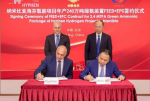The City of Windhoek has formally responded to a petition from the Khomas Ratepayers and Residents, rejecting a key demand for the unconditional write-off of pensioner debts while strongly encouraging pensioners to transition to prepaid utility meters. This stance headlines the City’s detailed reply addressing concerns over municipal services, housing, infrastructure, and financial management.
The City stated it “regrets” it cannot approve an unconditional write-off of debts owed by pensioners. It argued such a move would compromise the Council’s financial sustainability and its ability to maintain essential services for all residents. Officials highlighted that despite past targeted debt relief measures for pensioners, many fall back into arrears, creating an unsustainable cycle that strains City resources and its obligations to bulk service providers like NamPower and NamWater.
As an alternative solution, the City is “strongly encouraging” pensioners to switch to prepaid electricity and water systems. This approach, it stated, enables better consumption control and helps prevent future debt accumulation. The City also acknowledged unique challenges faced by pensioners living in Built Together Groups, where shared property ownership complicates accounts, and confirmed ongoing consultations to find fair solutions for these residents.
Addressing housing model concerns
The response also tackled issues surrounding Built Together Groups and the Savings Group Model. These groups, some affiliated with the Shack Dwellers Federation of Namibia (SDFN) and others independent, often acquired land in bulk and subdivided it informally. The City recognised this model, while aiding low-income land access, created challenges with ownership, service delivery, and legality.
For groups seeking individual land titles, especially for plots under 300m², the City outlined two legal pathways: utilising the Flexible Land Tenure System designed for small or informal plots, or applying for an exemption from the Ministry of Urban and Rural Development to register land despite size constraints. Groups are urged to contact the City’s Human Settlement Office in Katutura for guidance.
The City clarified that the original Built Together Program is no longer the primary housing framework, largely replaced by the national government-funded Informal Settlement Upgrading Program. Under this new program, financial support for land servicing or construction is no longer provided via Built Together; instead, residents receive assistance based on affordable housing and tenure security aligned with their income. For Built Together groups wishing to transfer land to individuals, the City stipulated two mandatory conditions: full repayment of the group loan and all municipal debts, and the formal dissolution of the group.
Other petition points addressed
On the proposal for better coordination between the Electricity and Debt Management Divisions, the City confirmed internal consultations are underway to explore establishing a formal link. It reiterated, however, that illegal connections and meter tampering remain criminal offenses subject to prosecution.
Regarding the Farm 508 relocation site for flood-affected households from Otjomuise and 8ste Laan (now home to over 300 families), the City detailed infrastructure progress. Land has been allocated for essential national government services like a police station, health centre, and school, and residents are encouraged to lobby relevant ministries for timely delivery. Temporary road access is in place while permanent infrastructure awaits design and budget finalisation. High-mast lighting is planned under the Electricity Universal Access Program, dependent on funding. While a dedicated token shop isn’t feasible yet, residents can recharge prepaid meters at the nearest City cash hall. The City acknowledged overcrowding on 200m² sites and advised affected individuals to consult the Human Settlements Division about relocation options. It assured that Farm 508 was formally planned for systematic service delivery, with temporary sanitation and water provided, and full infrastructure to follow as resources allow.
The City of Windhoek emphasised its commitment to “transparent dialogue and collaboration” to address community needs sustainably and equitably. It thanked residents for the petition feedback, assuring all concerns are being taken seriously in pursuit of inclusive urban development and efficient service delivery.










